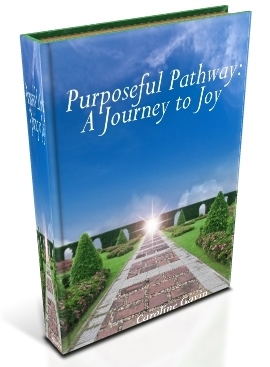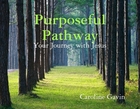Past Perceptions and Future Freedom
I enjoy conversing one-on-one with a good friend. Recently a dear friend of mine visited our home with her children. As she and I caught up on things, her children played with mine in the yard. They spent the majority of their time looking for frogs and salamanders. Yes, this is one of my son’s favorite pastimes, and my Alexander is quite skilled at catching these little creatures.
My friend mentioned to me that, since the get-together at my house, her daughter now looks for salamanders in their own back yard. My friend and I laughed as she shared that her daughter calls these little creatures “Alexanders” rather than salamanders. Ah, from the mouths of babes!
This adorable little girl had taken that which was familiar (my son’s name) to replace the unfamiliar (the name “salamander”). She had linked the unknown with something known.
How often do we ourselves do this? In the case of the “Alexanders,” the error is both innocent and precious…but, in our own lives, what are the repercussions of doing this on a larger scale?
For example, a woman may experience an abusive relationship and thereafter label all men as “bad” or “abusive.” In this case, linking the unknown (a future partner) with the known (the previous partner) is neither accurate nor favorable. A child may have an unkind teacher and thereby feel school is dreadful; he thereby links the unknown (future classes) with the known (the unpleasant class). Any one of us may experience changes that are painful and thereafter associate change with pain. Change, however, can be tremendously positive; this inaccurate association, again, does not serve us well.
What is the result of linking feelings or labels inaccurately to people, experiences or things? If we live with a skewed perspective, we cannot live fully in touch with reality. We cannot embrace the flow of time, the currents of change and the fullness of life. If we remain tied to the experiences and feelings of the past, we lose the opportunity to deeply connect with the experiences before us. When we release the untruths of past perceptions, however, we grow attuned to new experiences and insights, open to learning and awakened to seeing the Truth.
Clinging to past perceptions can hinder us as we journey purposefully along our path. Jesus reminds us that in obeying His Word, we “will know the truth, and the truth will set you free.” (John 8:32) So, although our past perceptions may lead us to feel that an action is acceptable, we must trust God if His Word shows such an action is sinful. Or, if our past perceptions lead us to believe that certain things are not possible to achieve, we must trust God if His Word shows that they are possible through His strength.
Are there any areas of mislabeling in your life? Perhaps you have mislabeled change with fear? Or righteous living with impossibility? Or attaining your mission with futile fantasy?
I encourage you today, as you travel purposefully, to be aware of the “Alexanders” in your life. Be vigilant of the labels you attach to people, experience and things. Recognize the feelings and beliefs you associate with them. And change any inaccurate label to match the Truth of God’s Word. In doing so, you will release tethers of the past and move purposefully toward your mission and your future…
~*~
© 2011 Caroline Gavin
Share about your past perceptions and future freedom!
What misbeliefs did you – or do – hold? How did you – or will you – free yourself of them?

















Recent Comments